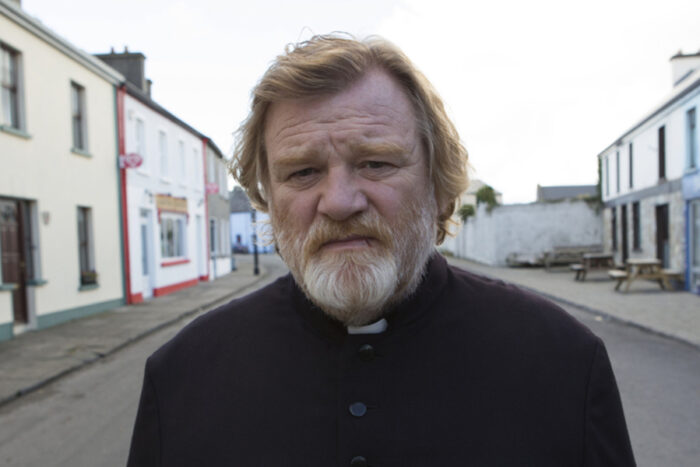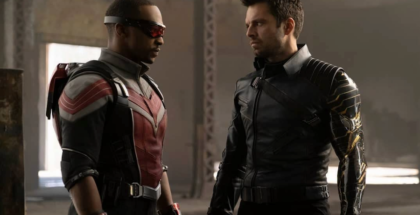VOD film review: Calvary
Review Overview
Brendan Gleeson
10Humour
9Heart
9David Farnor | On 22, Aug 2014
Director: John Michael McDonagh
Cast: Brendan Gleeson, Chris O’Dowd, Aidan Gillen, Dylan Moran
Certificate: 15
“Killing a priest on a Sunday. That’ll be a good one.” That’s an unknown congregation member to Father James one day in the confession box. Told he has one week to get his house in order, the priest finds himself facing death – for the price of other people’s sins.
Why? Because the killer was abused by a priest as a child. The culprit in question might long be dead by now, but killing a man of the cloth, they argue, is fair justice. Killing a bad priest, after all, means nothing, they decide. But killing a good priest? That stays with you.
Father James is certainly a good priest. Or, at least, he tries to be. A widower with a taste for the booze, he’s as redeemed as anyone gets in his quiet Irish village. Stepping seamlessly into the role, Brendan Gleeson towers over the community, a colossus of beard and disappointment. And director John Michael McDonagh knows it: he opens with the confessional confrontation, an exchange which takes place while we stare closely at Gleeson. It’s all there even without him saying a word; fear, anger, a noble strain of sacrifice. If In Bruges and The Guard established beyond a doubt that Brendan is one of the best actors around, Calvary confirms it with a resounding amen.
The camera’s repeated close-ups of Father James’ face means that we don’t see his potential killer. While others might turn that mystery into a thriller, McDonagh has deeper things on his mind: this is less a whodunnit and more a why-dunit. Our parade of suspects is as grim as it is entertaining, from Chris O’Dowd’s violent, swaggering butcher to Dylan Moran’s despicably drunk rich man, who’s as happy peeing on his art collection as he is looking at it. “I don’t have to know what it means,” he declares of one painting on the wall. “I own it.”
In a country where the church owns acres and acres of land, that lack of understanding is certainly on display here; the villagers are as hostile as they are holy, one minute asking for forgiveness from their Father, the next burning down the Lord’s house, where so many young have been abused. McDonagh’s script mercilessly hops between comedy and cold drama, a bleakly hilarious tone echoed by the desolate landscape. “That’s one of those lines that sound witty but doesn’t actually make any sense,” Gleeson snaps after a particularly barbed retort from another cast member. All the while, the mountain of Benbulbin looms in the background, a giant, grey slab of a tomb.
Faintly recalling the stations of the cross as our saviour-like figure walks slowly to his death, the religious parallels could well be laboured, but McDonagh’s touch is as light as it is philosophical. He occasionally shoots Brendan with a dutch tilt, making the tall giant seem smaller, more vulnerable than those tormenting him. All the while, the director raises questions about faith, church and modern society without hitting you over the head with a sermon.
“Do not despair; one of the thieves was saved,” the film reminds us at the start, referring to Christ’s crucifixion between two other crosses. Then the film adds: “Do not presume; one of them was doomed.” As Gleeson’s out-of-touch priest tries to reconcile himself with his daughter and his failings with the fallen world around him, Calvary stirs up that haze of despair and hope beautifully, the atmosphere of the inevitable finale singing like dust from an old hymnbook. There is a hint, though, that maybe reconciliation is possible after all.
Whether you’re a believer a not, Calvary’s punch lies there, in the moving story of a decent man coming to terms with his own mortality. He’s a good priest – and the thought of his death really does stay with you.




















